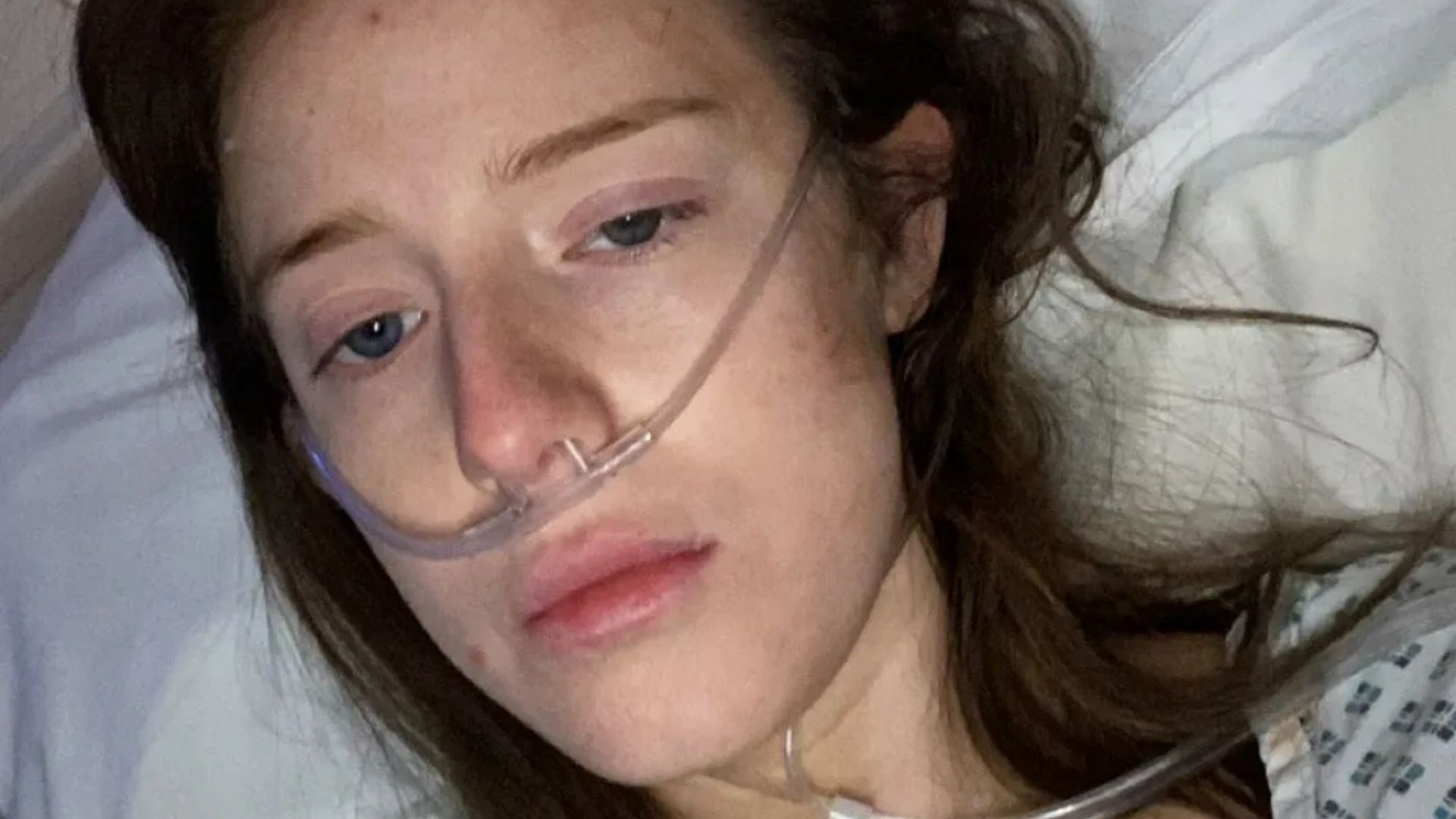A WOMAN whose bizarre symptoms were blamed on being a “fresher” and “drinking too much” received a devastating diagnosis.
Lucy Younger, 24, started experiencing started symptoms before she started university such as zoning out, smelling bacon and frequent déjà vu.
6

6

6
Her symptoms got worse at university but doctors dismissed her symptoms and told her she was “drinking too much” and needed to “slow down”.
Lucy spent the next year going back and forth to the GP but was dismissed and given antidepressants.
After finally being referred, a CT scan revealed a benign brain tumour, for which Lucy had to undergo a craniotomy to remove.
She hopes to help others to push to get a diagnosis to catch brain tumours early.
Read more on brain tumours
Lucy, a trainee journalist, from Crystal Palace, London, said: “Freshers started and my symptoms got quite a lot worse.
“Doctors said ‘you’re a fresher, you need to slow down’.
“They said ‘it’s a mixture of you being anxious and drinking too much’.
“They were making out I had an issue. I was just being a fresher.
“It just got blamed on being a fresher.”
Lucy first started noticing symptoms just before she started her BA in English at Goldsmiths, in September 2018.
She started experiencing déjà vu, as well as visual hallucinations – like pink elephants and rollercoasters.
Initially thinking she was just partying too hard during freshers, Lucy stopped drinking as much, and regularly chose staying in over nights out.
But her symptoms only started getting worse – and she experienced a range of sensory hallucinations, like smelling bacon, pins and needles in her face and tasting metal.
She went to the GP when she started getting sharp headaches – but they blamed it on anxiety and “being a fresher”.

6

6

6
Lucy said: “Straight away, they were like – it’s anxiety.
“I didn’t feel all that anxious, but I’d just done a big move from Newquay to London and was meeting lots of new people – so I thought, I guess my brain’s just working overtime.
“But I was still skeptical – I felt really happy with where my life was at that point.”
‘Something wasn’t right’
Lucy started to struggle with her concentration and would zone out during lectures but doctors put this down to depression and panic attacks and prescribed her with anxiety medication.
She said: “I figured, they’re the GP – they know what they’re talking about, so I guess I’ll just do what they say.”
But Lucy’s symptoms continued to persist – and doctors then told her it was hormonal caused by polycystic ovary syndrome (PCOS).
She said: “I just knew something wasn’t right.”
I started getting migraines so bad the entire right side of my body would go numb. I thought, I’m either going into psychosis or I’ve got a tumour – it definitely wasn’t depression or anxiety
Lucy Younger
When Lucy came home in March 2020, when the pandemic hit during her second year of university, she started experiencing seizures.
She said: “I had a couple of bigger seizures when I went home – I actually passed out with these ones.
“I started getting migraines so bad the entire right side of my body would go numb.
“I thought, I’m either going into psychosis or I’ve got a tumour – it definitely wasn’t depression or anxiety.”
Lucy had started Googling her own symptoms and said everything pointed to epilepsy and a brain tumour – but doctors dismissed this.
She said: “They said ‘you’re too young’. ‘A girl like you wouldn’t have a brain tumour’.”
‘You know your body’
Feeling helpless, with permanent hallucinations, Lucy rang a local pharmacist and cried down the phone to him.
He sent a letter to her GP, recommending they refer her for a CT scan as soon as possible.
Lucy added: “My pharmacist advocated for me – once he’d spoken to my GP, they arranged for me to have a CT scan.
“I went in the July – and finally got my diagnosis of a benign brain tumour.”
The most common symptoms of a brain tumour

More than 12,000 Brits are diagnosed with a primary brain tumour every year — of which around half are cancerous — with 5,300 losing their lives.
The disease is the most deadly cancer in children and adults aged under 40, according to the Brain Tumour Charity.
Brain tumours reduce life expectancies by an average of 27 years, with just 12 per cent of adults surviving five years after diagnosis.
There are two main types, with non-cancerous benign tumours growing more slowly and being less likely to return after treatment.
Cancerous malignant brain tumours can either start in the brain or spread there from elsewhere in the body and are more likely to return.
Brain tumours can cause headaches, seizures, nausea, vomiting and memory problems, according to the NHS.
They can also lead to changes in personality weakness or paralysis on one side of the problem and problems with speech or vision.
The nine most common symptoms are:
- Headaches
- Seizures
- Feeling sick
- Being sick
- Memory problems
- Change in personality
- Weakness or paralysis on one side of the body
- Vision problems
- Speech problems
If you are suffering any of these symptoms, particularly a headache that feels different from the ones you normally get, you should visit your GP.
Source: NHS
Lucy had surgery four months later to remove the tumour and was able to return to university in 2021 to complete her studies.
She is now able to live a normal life but has to live with epilepsy and short term memory loss.
She said: “You do know your own body.
“If there is something wrong you need to advocate for yourself.
“I caught my brain tumour early.
“If I hadn’t there could have been a chance it wouldn’t have been removed and the ending would have been a different scenario.
“People think a brain tumour is a death sentence – it’s not always that way.”
Other devastating misdiagnosis stories
Though concerning symptoms are most often caught by medics, sometimes they can go unnoticed or dismissed.
From the young girl who was misdiagnosed 30 times before the cause of her “tummy bug” was discovered, to a woman told her pelvic pain was “part of being a woman”, here are some instances of misdiagnosis:




